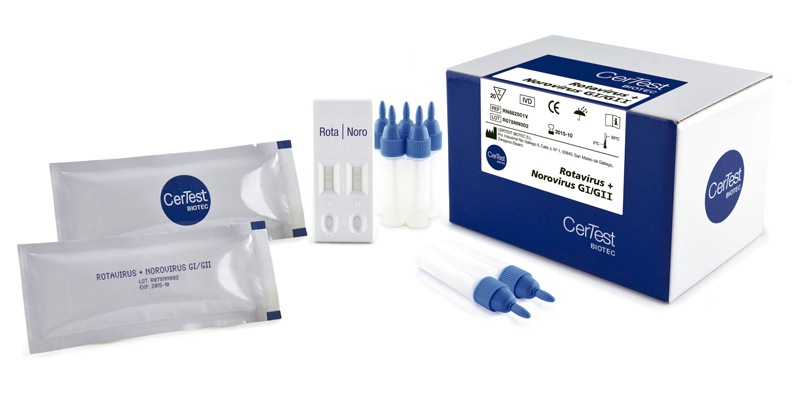
Rapid Test
Rotavirus + Norovirus GI/GII

Description
CerTest Rotavirus + Norovirus GI/GII one step combo card test is acoloured chromatographic immunoassay for the simultaneous qualitative detection of Rotavirus, Norovirus genogroup I and II (GI and GII) in stool samples.
CerTest Rotavirus + Norovirus GI/GII combo card test offers a simple and highly sensitive screening assay to make a presumptive diagnosis of Rotavirus and/or Norovirus infection.
Specifications
Information
Rotavirus, Adenovirus and Astrovirus are most common and major causes of severe gastroenteritis in infants and young children. Pattern also observed in adults.
They are transmitted by faecal-oral contact. The main symptoms of viral gastroenteritis are watery diarrhoea and vomiting. The affected person may also have headache, fever and abdominal cramps (“stomach ache”). In general, the symptoms begin 1 to 2 days following infection with a virus that causes gastroenteritis and may last for 1 to 10 days, depending on which virus causes the illness (Rotavirus 3 days, Adenovirus 5-8 days and Astrovirus 3 days).
Noroviruses are the leading cause of epidemic gastroenteritis, including foodborne outbreaks, in the United States.
Noroviruses belong to the family Caliciviridae and can be grouped into five genogroups (GI through GV), which are further divided into at least 34 genotypes. Genotypes GI, GII and GIV infect humans, causing gastroenteritis, whereas GIII and GV typically infect animals.
The symptoms of Norovirus related diseases are those typical of gastroenteritis that is, vomiting, watery diarrhea and abdominal cramps.
Vomiting is a characteristic symptom in the majority of Norovirus infections (64% of adults and 81% of children). Other symptoms such as general malaise, low grade fever, nausea and fatigue are also present in over 90% of cases. The incubation period of the disease is generally between 12 and 48 hours, while infection lasts between 12 and 60 hours. Infection may also be asymptomatic, and thus contribute to the spread of the virus in the community.
As a rule, the disease does not have serious consequences, and most patients recover within 1-2 days without complications. Debilitated patients and persons with weaker immune systems such as children, elderly or chronic patients may be affected by more serious forms of the disease. Specially, dehydration may represent a serious complication for children, the elderly and persons with a precarious metabolic balance or cardio circulatory instability.
